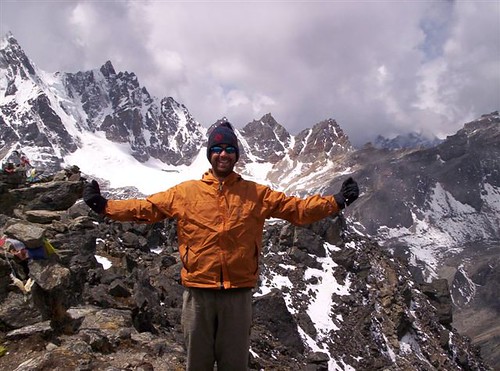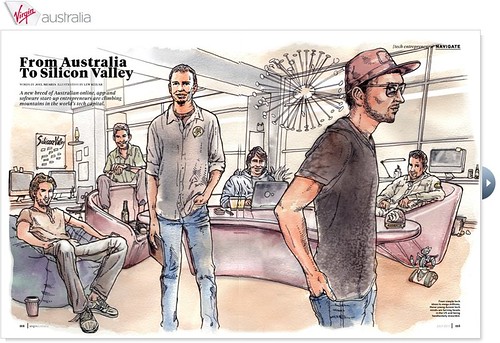In March this year, I posted my still evolving thought process on what success is. In the post, I said how success, like religion, is a personal thing and so there is no right answer. But I proposed a framework to think about the question: whereby I defined success as having three dimensions, which have no minimum or maximum value but simply are a constant pursuit of development. Those dimensions are existence, freedom, and impact and which I suggest you read before continuing with this post.
The problem with that framework, is it actually is still too broad. And where it lacks in detail, it also lacks in something fundamental: metrics to measure success. Six months later, this is how my thought process has evolved — still evolving, but I hope can stimulate your own thinking about your life.
On the pursuit of existence
You can define existence as a variety of ways, but I think a fundamental concept is your life expectancy as well as the quality of it. How long can you live, in years, to your full ability — being the ultimate (never ending) goal.
Number of years you are alive I think is a pretty self-explanatory thing to say as a goal: 75 years is better than 50 years. Less obvious, is how able you are: a 65 year old on life support due to lungs, kidneys and liver issues from poor dietary habits, is by no means the same as a healthy 65 year old. If life span is the number to measure this dimension of success, then your health is the factor to create an expected value: 65 years at 25% capacity versus 65 at 95% is 16 years versus 62 years. Literally, a life time apart.
Which is why your nutrition matters: look after yourself in your 20s and you’ll be doing better in your 40s, not just in life span but life quality. Drinking soft drinks at 30 once a day hurts your long term health quality and will reduce your life span expected value. We forget that, and it’s only when people get older do they regret not thinking about this (so I’m told).
But then there is a flip side to being a health freak: being 30 worrying about what you eat hurts you in different ways, like your freedom and experiences. More on that below.
On the pursuit of freedom
Whether you claim to chase money or not, the point is moot: money is what makes the world go around because it’s what we’ve agreed to be a mutually exchagable form of value. Money simply represents value, and its accumulation has value not from the paper bills/plastic notes/lumps of metal itself that money is printed as but what it represents: purchasing power to save your time (not a representation of your capital base, which is materialism).
In society, we are so focussed on the material and the bigger numbers but we forget the character of what matters. But its key to understand income — recurring monetary inflow — is such a key concept to success, because it enables freedom: without the ability to pay for food and shelter, you’re going to spend the rest of your waking time trying to find solutions to these issues, an opportunity cost.
When I spent nine months backpacking around Europe in 2005, I observed how people travelling, like how I had become, are very primitive in their activities: look for a new hostel to sleep in, find a new place to eat food. I was quite literally, a cave man. Even with cash to pay for these, the search took time. Now imagine you need a summer job as a working holiday to experience the travel, and you’ve just knocked out more time outs during the day to experience your “travel”. Travel might be temporary, but rephrase what I said now for regular life and the point remains. “Living” means surviving as its most basic, but we can do better than that as humans.
When it comes to measuring success on freedom, understandably income should be considered a core benchmark. Not how much you spend, but how much you can make — that spending power gives you not material wealth, but something much more valuable: your time. Income can buy you food, shelter, and the ability to outsource or delegate functions in your life that time would otherwise need to be expended.
However, how much you make is not the ultimate because its not secured. Which is why the ultimate measure of income in capital: after all, capital is simply the accumulation of income. Capital is the result of income, without the need to personally exert yourself from getting the benefit of it; more specifically, capital can been monetised, generating a passive income which is the ultimate in enabling freedom.
Therefore when it comes to success in terms of capital, $100,000 is much more valuable than $10,000, obviously. But a subtle point to remember, is that to get the value of capital it either is locked up making a passive income (say, in real estate with a rental) or it’s liquid so that it enables the ability for you to use that purchasing power for your life.
One million dollars in the bank that can be withdrawn tomorrow? Very successful. One million dollars invested in a property making a 10% return? Also, very successful though not very liquid:but that’s ok becayse it’s generating $100,000 a year in passive income, on top of the capital base that grows through capital gain. One million dollars locked up in an stock market investment that can’t be liquidated for a month? Not good — but very good if it generates a 10% return on say, the stock market in that month.
But simply attaining capital is not life accomplished because if inflation rates are 9%, then that 10% return on real estate and stock is actually only a 1% return. That passive income (or rather, purchasing power) now is only 1% of the capital base. And that’s fine because capital has value in immediate liquidity (also purchasing power), but sometimes it’s worth trading short term liquidity to grow that capital base otherwise inflation will catch up and any income dependent on that capital will actually erode in value. Capital generates passive income, but that capital needs to be secured through investment to not have it be eroded.
Therefore the ultimate measure of capital is lifetime cashflow in real purchasing power. You can try to accumulate it, and you want to grow it above inflation. But once you’ve done that, you’re now getting greedy: the time cost in your life now actually impacts on your freedom, the whole point of capital accumulation, passive income and purchasing power. But as you dance with growing your capital base , income stream, and ultimately freedom, let’s not forget being busy we dream of more time, but when you have too much time on your hands it can be downright depressing. Enter impact.
On the pursuit of impact
Impact, like existence and freedom, is a core tenent to life about what I think matters if you want to define success. Impact not only gives you purpose but it gives you direction in life. Impact boost your self esteem. Better still, impact benefits your surroundings better than how you found it.
However impact is a hard thing to quantify. Is it number of people you “impacted” and what does that mean? As a raw score, sure helping one person once a day is better than helping one person once a month. But nothing in life is free: “helping” often comes with a benefit for the other party, such as profit for the business merchant, conversion for the religious zealot, or an orgasm for the sexual expectant.
If you go though life travelling the world, you leave an impact through the people you meet; if you toil yourself to build a business, you leave an impact through the products you create. But when impact is simply measured by “number of people”, it’s actually not all that solid: their needs to be not a mutual exchange, but a net positive where an interaction outputted more than what was entered with.
So what makes it a net positive? When you’ve really touched someone. But you can never know if you did that, so failing that we need to make sure one person was touched by the impact: you. You might have spent three months suffering, but that story will inspire, educate, and benefit 1000 other people in a profound way — and we may never know until your funeral, though you remember those three months. You might travel speaking to one hundred thousand people, of which only 1% where meaningful conversations: but no one remembers your name to prove it, but you remember the experience.
So when it comes to measuring impact, it’s not just number of people but number of people’s who’s lives you have touched. And by touch, it’s not a number but a meaningful impact that comes from your own life experience. One hour a day in a homeless soup kitchen is a different kind of impact from one hour a day building a game that someone plays on their smart phone. And neither is better than the other, so long as someone’s soul was touched; the most important one, being your own.
Meaning, whatever it is you’re doing, you’re leaving an impact by touching the lives of other people, but one person who we can measure is your own in the form of experience which is the only number that we can reliably count.
Success: measured
For those that think in numbers, success as a number = (Number of years you are alive times by how able you are due to health) multiplied by (capital base times by return) multiplied by (number of people impacted times percentage that were truly touched). That gives the theoretical optimum to the ultimate thing.
Otherwise said, if you have a long healthy long life and you have a lot of purchasing power to buy freedom, then you have more time to impact which ultimately leads to the only thing that matters: number of life experiences (which along they way, benefited others as well that increased their own existence, freedom, and impact).
And that, I believe, is a what a rich life is.








